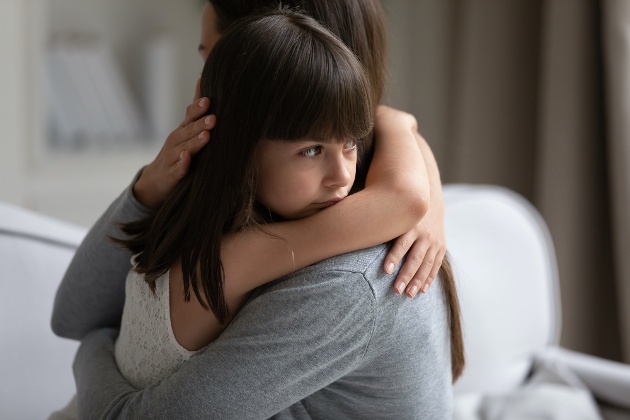- Law Practice Areas
- Resources For You
- Child Support Calculator
- Take Our Divorce Quiz
- Protect Your Assets and Net Worth During Divorce
- Blog
- Family Law Videos
- Your Guide to California Divorce
- Your Guide to Child Custody & Support
- Everything You Need to Know About Getting a Prenup
- An In-Depth Look at Divorce Mediation
- Top Considerations for High Asset Divorce
- Our Legal Team
- Locations
- Reviews
- Contact

Domestic violence, such as spousal abuse and child abuse, impacts all types of marriages and families. Contrary to popular belief, domestic violence is not something that only affects people who are poor and uneducated. In reality, domestic violence affects families from all races, religions, educational backgrounds, and socioeconomic classes.
In many cases, abusive behaviors are passed down from generation to generation, or they are the byproduct of drug or alcohol abuse, researchers have learned. If you are a victim of domestic violence or are in an abusive marriage, and you have children with your abusive spouse, you may be wondering how domestic abuse in California impacts divorce and child custody cases. These are valid questions indeed.

Domestic Violence Restraining Orders
Domestic violence in California is far more than beating a family member. It can also be threats, sexual abuse, stalking, harming the family pets, emotional abuse, throwing things, pushing, shoving, and keeping someone from freely coming or going, etc.
If your spouse is abusing you, or your children, there are things that can help protect your parental rights in the case of a divorce, such as: 1) calling the police and filing charges, 2) documenting the domestic abuse with pictures, and 3) asking the court for a domestic violence restraining order.
A California domestic violence restraining order can order your spouse to:
-
Stay away from you and your children
-
Stay away from your work or school
-
Move out of the family residence
-
Stay away from your children’s school
-
Give up any ammunition or firearms
-
Pay child support and spousal support
-
Pay specific bills, such as the mortgage and car payments
-
Successfully complete a 52-week class on batterer intervention
Domestic Violence and Child Custody
When it comes to leaving an abusive spouse, safety is your number one concern, which is why it’s so important to document the domestic violence and seek a restraining order. Generally, domestic violence affects who gets primary custody of a child when one parent has committed domestic violence in the last 5 years against the other parent or their child.

One of the most effective ways to demonstrate to a judge that the other parent has committed domestic violence is to have a recent (in the last year) domestic violence restraining order against him or her. But other evidence of domestic violence in the past five years may also suffice.
If there is a finding of domestic violence, usually a judge will not give legal custody to the abusive parent, but he or she may have visitation or supervised visitation rights. However, if the child abuse was severe, the judge may decide it is not in the best interest of the child’s well being to have contact with the abusive parent.
Note: In some cases, a judge may give custody of a child to an abusive parent when it is in the child’s best interests, but this does not usually occur unless the parent does not have any prior history of domestic violence, they have followed all conditions of their restraining order, they have completed a one-year batterer intervention program, and they have met other strict criteria.
If your divorce or family law matter involves domestic violence, we urge you to contact our firm to meet with a San Diego divorce attorney.




